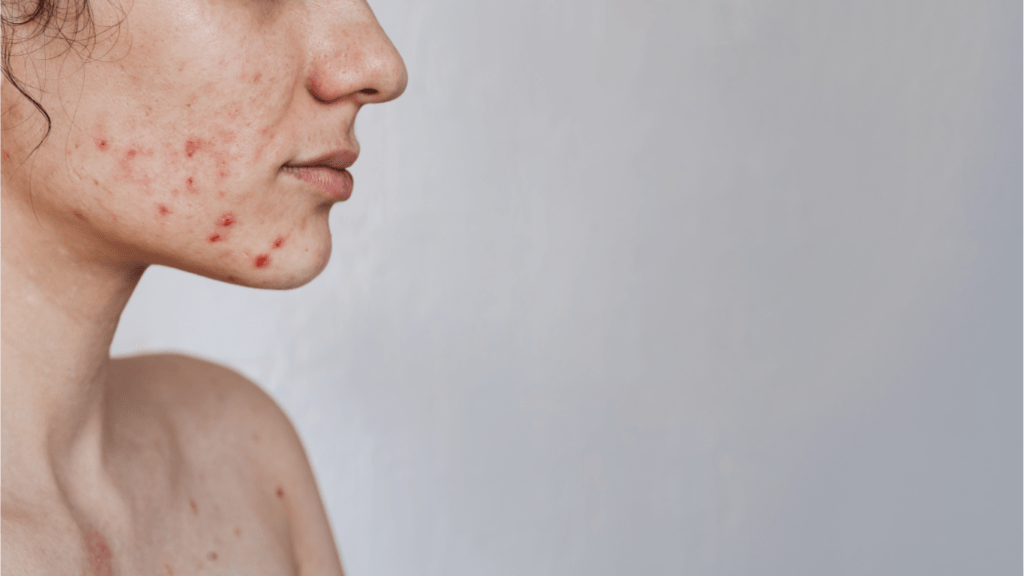Understanding Skin Health
Healthy skin requires understanding the factors that contribute to its glow and appearance. Let’s delve into the science and common issues affecting skin health.
The Science Behind Glowing Skin
Glowing skin results from proper hydration, balanced sebum production, and effective skin cell turnover. Skin cells regenerate approximately every 28 days.
Optimal hydration from water and moisturizers keeps skin plump. Sebum production, controlled by sebaceous glands, maintains natural moisture.
Key nutrients like vitamins A, C, and E support collagen production and protect skin from free radical damage (Harvard Health Publishing). Improved blood circulation enhances oxygen and nutrient delivery to skin cells.
Common Skin Problems and Solutions

Several skin issues can hinder achieving a natural glow. Acne, caused by clogged pores and bacteria, can be managed with salicylic acid and benzoyl peroxide.
Dry skin, often due to lack of moisture, benefits from hyaluronic acid and glycerin. Hyperpigmentation, resulting from excess melanin, can be treated with ingredients like niacinamide and alpha arbutin (American Academy of Dermatology).
| Skin Problem | Cause | Solution |
|---|---|---|
| Acne | Clogged pores, bacteria | Salicylic acid, benzoyl peroxide |
| Dry Skin | Lack of moisture | Hyaluronic acid, glycerin |
| Hyperpigmentation | Excess melanin production | Niacinamide, alpha arbutin |
Understanding these components and remedies provides a solid foundation for achieving natural, glowing skin.
Daily Habits for Natural Radiance
Achieving glowing skin isn’t just about special treatments; daily habits play a crucial role.
Importance of Hydration and Nutrition
Keeping the skin hydrated ensures it looks supple and radiant. I drink at least 8 glasses of water daily to maintain skin moisture levels. For nutrition, I focus on foods rich in vitamins A, C, and E, along with omega-3 fatty acids.
Leafy greens, citrus fruits, nuts, and fatty fish support skin health from within. Including antioxidant-rich foods helps combat free radicals, which can damage skin cells.
The Role of Sleep in Skin Health
Quality sleep is vital for skin repair and regeneration. During sleep, the body boosts blood flow to the skin, leading to a healthy glow upon waking. I aim for 7-9 hours of sleep each night.
Consistent sleep schedules help minimize dark circles and dull-looking skin. If the focus is on skin improvement, ensuring adequate rest becomes non-negotiable.
Essential Skincare Techniques
To achieve glowing skin naturally, I focus on essential skincare techniques that nurture and protect my complexion.
Gentle Cleansing and Exfoliation
Daily cleansing removes dirt, oil, and impurities. I use a mild cleanser with a pH between 4.5-5.5 to maintain skin barrier health.
Twice a week, I exfoliate using a gentle product containing alpha hydroxy acids (AHAs) or beta hydroxy acids (BHAs). AHAs like glycolic acid and lactic acid help remove dead skin cells, revealing a smoother texture.
BHAs like salicylic acid penetrate pores, reducing acne and blackheads. Over-exfoliating can irritate skin, so moderation is key.
Natural Moisturizers and How to Use Them
Hydrated skin appears healthier and more radiant. I choose natural moisturizers like:
- aloe vera
- shea butter
- jojoba oil
Aloe vera soothes and hydrates, making it ideal for sensitive skin. Shea butter provides deep moisture and improves elasticity. Jojoba oil mimics skin’s natural sebum, balancing oil production.
After cleansing, I apply a moisturizer to damp skin for better absorption. Adding a few drops of essential oils like lavender or chamomile can offer additional calming effects.
The Impact of Environment on Your Skin
Environmental factors profoundly affect skin health. From sun exposure to pollutants, these elements can either enhance or deteriorate your skin’s condition.
Protecting Skin from Sun Damage
Sun exposure contributes significantly to skin damage. Over time, UV rays cause premature aging, hyperpigmentation, and even skin cancer.
Broad-spectrum sunscreen with an SPF of at least 30, applied daily, offers essential protection. Wear protective clothing like hats and sunglasses, and seek shade when possible, especially between 10 AM and 4 PM when UV rays are strongest.
Benefits of Fresh Air and Exercise
Fresh air and regular exercise boost skin health. Outdoor activities improve blood circulation, delivering more oxygen and nutrients to skin cells. This process helps promote a natural glow.
For instance, brisk walking, jogging, or cycling for at least 30 minutes most days can enhance overall skin vitality by reducing stress and supporting collagen production.
Advanced Natural Treatments
Exploring advanced natural treatments enriches any skincare routine. Using DIY face masks and oils transforms skin health.
DIY Face Masks and Natural Ingredient Benefits
DIY face masks utilize natural ingredients to target specific skin concerns. Honey provides antibacterial properties, reducing acne.
Oatmeal soothes irritated skin, while avocado moisturizes deeply. Mix honey, oats, and avocado into a paste. Apply the mask for 15 minutes and rinse off with warm water.
Another effective mask combines yogurt, turmeric, and lemon juice. Yogurt’s lactic acid exfoliates dead skin cells. Turmeric reduces inflammation, and lemon juice lightens dark spots.
Blend these elements into a smooth paste and apply for 20 minutes. Rinse thoroughly with lukewarm water.
The Role of Oils and Herbs in Skin Care
Oils and herbs play significant roles in skincare. Jojoba oil mimics skin’s natural sebum, balancing oil production.
Use a few drops after cleansing for hydrated, non-greasy skin. Rosehip oil, rich in vitamins A and C, treats hyperpigmentation. Apply a few drops nightly before moisturizing.
Herbs like chamomile calm sensitive skin due to anti-inflammatory properties. Brew chamomile tea, let it cool, then use a cotton pad to apply. Aloe vera, another beneficial herb, heals and hydrates skin.
Apply fresh aloe vera gel directly to clean skin, leave for 10 minutes, and rinse off.
Integrating these treatments into regular skincare routines provides glowing, healthy skin naturally.


 Bradley Frankirly is a distinguished article writer at Body Care And Matter, bringing a unique perspective to the world of health and wellness journalism. With a keen eye for detail and a passion for storytelling, Bradley crafts articles that resonate deeply with readers, offering both informative content and a relatable narrative.
Bradley Frankirly is a distinguished article writer at Body Care And Matter, bringing a unique perspective to the world of health and wellness journalism. With a keen eye for detail and a passion for storytelling, Bradley crafts articles that resonate deeply with readers, offering both informative content and a relatable narrative.

